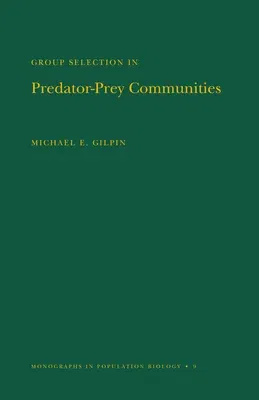Michael E Gilpin
(Author)Group Selection in Predator-Prey Communities. (Mpb-9), Volume 9Paperback, 21 July 1975

Qty
1
Turbo
Ships in 2 - 3 days
In Stock
Free Delivery
Cash on Delivery
15 Days
Free Returns
Secure Checkout

Part of Series
Monographs in Population Biology
Part of Series
Monographs in Population Biology, 99
Part of Series
Princeton Series in Physics
Print Length
124 pages
Language
English
Publisher
Princeton University Press
Date Published
21 Jul 1975
ISBN-10
0691081611
ISBN-13
9780691081618
Description
Product Details
Author:
Book Format:
Paperback
Country of Origin:
US
Date Published:
21 July 1975
Dimensions:
22.2 x
14.17 x
0.91 cm
Genre:
Ecology
ISBN-10:
0691081611
ISBN-13:
9780691081618
Language:
English
Location:
Princeton
Pages:
124
Publisher:
Series:
Weight:
181.44 gm